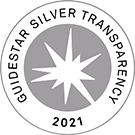Research
Cape Cod has a shark problem. Through research completed by the Atlantic White Shark Conservancy, Massachusetts Division of Marine Fisheries, and OCEARCH, we know much more about white sharks than ever before. Around Cape Cod, the white shark population is increasing significantly every year. It spikes during the summer months, coinciding with the peak months for recreation and tourism. In search of food such as seals, white sharks in Cape Cod spend much of their time in less than 15 feet of water, frequenting beaches, bays, and harbors throughout the Cape, Islands, and nearby Massachusetts coastlines. Cape Cod is a global white shark hotspot---a conservation success story with unintended consequences.
PUBLIC SAFETY
White sharks occasionally mistake humans for seals. The past two summers, the white shark presence on the outer beaches of Cape Cod was undeniable. Over a thirteen-month period in 2018, those beaches recorded three attacks, several encounters, and hundreds of sightings. One of the attacks resulted in serious injury and another resulted in the death of 26-year-old ocean-enthusiast Arthur Medici. According to the researchers and experts, this is only the beginning. Unless something changes, shark attacks will continue to grow in number, and spending time in the ocean will continue to become more dangerous.
Economic Impact
We know from experience around the world that an increasing frequency of shark interactions has a severe negative impact on local economies. Shark fears, sightings, and encounters result in people choosing to spend their time and money elsewhere. We may already be seeing this on Cape Cod. Per a recent report from the Cape Cod Chamber of Commerce, the number of Cape Cod National Seashore annual visitors dropped by 750,000 from 2016 to 2018. It stayed flat in 2019, all while the U.S. economy was growing steadily. Even if the average visitor spends only $100 per visit, the economic impact of this drop is $75 million per year.
Our Response
Cape Cod is a community dependent upon recreating and working in and around the ocean. We believe we can and must do more now, before it is too late. We hope to work with local, state, and federal government agencies to accelerate the process of testing surveillance and detection technology on Cape Cod.

